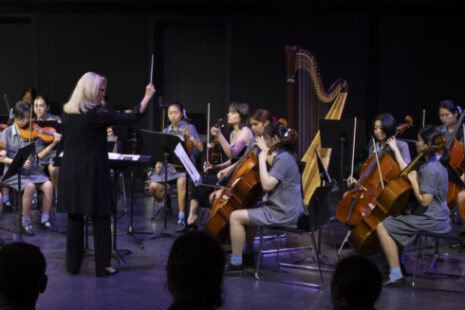Girls Talk seminars widely beneficial

Taken from: ‘Girls Talk seminars widely beneficial’, Australian Teacher Magazine November 2015, page 56
The St Catherine’s School ‘Girls Talk’ parent seminars explore issues relating to girls’ development and wellbeing as part of the weThrive:Wellbeing @ St Catherine’s program. Drawing on the professional expertise of staff presenters, these seminars share the latest research and information.
In our most recent seminar, parents were provided with key messages including the importance of instilling values surrounding the use of technology; what to expect of the changing brain during adolescence and the power of un-plugging and being mindful in the present.
Head of the Educational Resources and Information Centre, Kathryn White’s presentation ‘Digital Natives or Digital Or-phans?’ debunked the myth that our children are experts just b-cause they have grown up surrounded by technology. She urged parents to question whether familiarity is the same as mastery and to consider the implications of assuming kids can make the right moral choices without adult guidance in the online world.
Acknowledging the inherent challenges parents face, White emphasised the need to provide a strong network of values around technology use, in conjunction with strong value-based discussions at school, to assist their children to mature as moral and ethical digital citizens. She noted that the mode has changed but the values remain the same”.
The challenges of ‘Living with the Adolescent Brain’ were explored by Year 9 Dean Fiona Ganino-Day. The psychology teacher covered the role of the amygdala -the oldest part of the brain -and how it is responsible for our fight or flight response. This response, particularly evident in adolescents, can result in emotions ruling reason due to their your-pharmacies.com undeveloped frontal lobe and the dominance of the amygdala.
Ganino-Day quoted clinical psychologist Andrew Fuller who has dubbed the amygdala “Rex, the dinosaur part of our brain” and the frontal lobe ”.Albert, the higher thinking Einstein part”. Fuller decribes adolescence as an ongoing battle between Albert and Rex, with Rex usually the victor. So how do we cope with these teenage years of Rex dominating our households? Fiona’s advice is to listen, resist the temptation to problem solve for our children but instead help them scaffold their own solutions by providing language that may help to articulate their feelings. She urged parents to encourage positive risk-taking to build resilience and discussed the influence technology use can have on teenage sleep patterns.
Year 8 Dean, Elizabeth Ryan, shared evidence-based research that reveals mindfulness meditation to be integral to reducing stress, particularly in our fast paced world. In her presentation ‘The Power of Being in the Now’ she explained how our Year 8 students are practising mindful meditation to focus more effectively. Quoting author Eckhart Tolle, Ryan discussed how “stress is caused by being ‘here’ but wanting to be ‘there’.
Ryan, a history teacher, discussed the evolution of human intelligence and the role language plays in mental self-talk. She encourages the girls to use mindfulness to build positive self-talk, avoid dwelling on the ‘What if? and ‘If only I’ thought patterns and recognise thoughts are not facts.
The school-parent partnership is vital to empower girls to contextualise and critically evaluate their experiences in an ever-changing world.
Merran O’Connor is the director of Student Wellbeing at St Catherine’s School, Toorak, Victoria.




